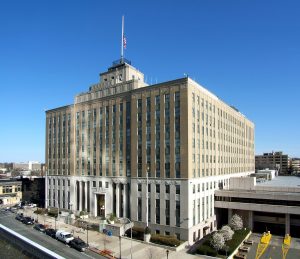 Prior blog posts have discussed the concept of surplus monies in foreclosure proceedings. Surplus funds occur when a property is sold at a public foreclosure auction, and the amount bid exceeds the amount of debt owed on the property. For example, a homeowner defaults on his mortgage, and owes $300,000.00 to his lender. After extensive legal proceedings, the house is sold at public auction, and the winning bid is $400,000.00. There is therefore an “extra” $100,000.00 now available. Does the defaulting homeowner have a right to these surplus funds?
Prior blog posts have discussed the concept of surplus monies in foreclosure proceedings. Surplus funds occur when a property is sold at a public foreclosure auction, and the amount bid exceeds the amount of debt owed on the property. For example, a homeowner defaults on his mortgage, and owes $300,000.00 to his lender. After extensive legal proceedings, the house is sold at public auction, and the winning bid is $400,000.00. There is therefore an “extra” $100,000.00 now available. Does the defaulting homeowner have a right to these surplus funds?
The answer is yes. In general, subject to other liens, the owner of the property which is sold at auction has the right to collect the surplus funds if the house is sold for more than the foreclosing creditor (usually a bank) is owed. How does the former owner of the property go about collecting these funds? We would advise that any homeowner who may be in such a position to engage experienced counsel to represent his interests. The reason is that collecting surplus funds requires knowledge of the Court system and the procedures necessary to allow the funds to be disbursed.
When a property is sold at auction, a Court-appointed Referee is responsible for collecting the funds from the winning bidder, and paying off the creditor who brought the foreclosure action. Once this is done, the Referee will file a report in the appropriate Court, showing an accounting of the sums received from the auction, and the disbursement of same. The report will also show whether there were surplus funds; that is, whether the winning bid exceeded the amount owed to the foreclosing entity. If that is the case, the Referee will deposit the surplus funds with the Department of Finance in the County in which the foreclosure took place.
Once the funds are deposited with the appropriate Department, they will remain on deposit until a Court order is obtained allowing the funds to be disbursed. Counsel familiar with these procedures will file the appropriate motion or motions with the Court to request that a Judge allow disbursement of the funds. However, not every surplus funds situation is straightforward. There may be other creditors, such as second mortgage holders, tax lienors, condominiums with a common charge lien, and the like. Such creditors may have already filed liens with the Court evidencing their claim to any surplus funds.
It is the job of the attorney handling the recovery of the funds to notify any other creditors who have appeared in the foreclosure action that disbursement of the surplus funds is being sought. In such situations, the parties may enter into an agreement delineating the amount to be received by each creditor. In order to expedite the process, creditors may agree to a reduction in the amounts owed to them.
Any such agreement must be approved by the Court. If the various parties are in agreement, they can submit, through counsel, a proposed Order to the Court, which will state how the funds are to be disbursed. Once the Order has been signed, it can be sent to the appropriate entity holding the funds, and the surplus funds can then be disbursed as per the terms of the signed Order.
Recovery of surplus funds can be a complicated and, at times, lengthy procedure. Many lawyers, such as our firm, will agree to represent parties and recover surplus funds on their behalf for a percentage of the amount of surplus funds actually paid, so that only filing costs are advanced and no legal fees are due unless the funds are actually recovered. Enduring a foreclosure case can be difficult, but potentially obtaining surplus funds may help soften the blow. If you believe you are entitled to such funds, we welcome your inquiry.
 New York Real Estate Lawyers Blog
New York Real Estate Lawyers Blog

